Arthur Kennedy writes: The destruction of our institutions by partisanship
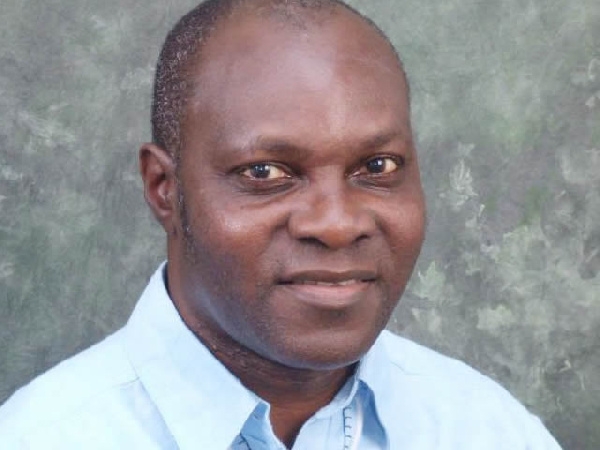 Arthur Kennedy
Arthur Kennedy
As Ghanaians, we bemoan the fragility of our institutions all the time. Together with corruption, very few factors are cited more often as causes of our underdevelopment than the weakness of our institutions. Indeed, in 2009, when President Obama stated that Africa needed strong institutions and not strong men, there was universal agreement.
Whatever you list of the causes of our underdevelopment, put partisanship at the top of your list. It deserves to be there.
I am not concerned here with the partisanship of foot soldiers– I am focused on the partisanship of institutions and personalities whose partisanship undermine our democracy.
Last week, before the withdrawal of the appointment of the new Director-General for Ghana Health Services and his replacement, there was a statement by the NPP Health Caucus of the Komfo Anokye Teaching Hospital. What, in the name of God, is a party group doing in a hospital? What is next? The NDC caucus at Gondar barracks discussing whether they should stage a coup? To be fair, there are NDC groups too in our hospitals and other institutions. These partisan groups undermine the professionalism and “esprit de corps” of our health professionals. Here in the US, it is unheard of to have a party group in a hospital. The 1939 Hatch Act prohibits that. Indeed one can work with someone for years without knowing their political affiliation.
But this destructive partisanship does not end in healthcare. It afflicts the judiciary, tax collecting agencies, the police, the military, the Press and even our places of worship– our churches and mosques.
Our judiciary has been infamously political and partisan since the days of Nkrumah, starting with re : Akoto, through the Ayawaso election ruling in 1996 through judges finding nothing wrong with the freeing of accused persons from custody to the removal of the Chair of the EC! And I left out a ton of examples.
Our tax collection shields party members and targets opposition members– under both NPP and NDC.
The Police has no independence and IGPs– all of them, when asked by the President to jump, invariably ask, “How high, Sir”. A police force whose leadership are more focused on pleasing the politicians rather than enforcing the law would never be effective. I am told, on good authority that when former President Mahama confirmed an appointment recommended by the military brass, he was berated by party functionaries because, “he is not one of us!” His competence was never brought up. And this example notwithstanding, destructive partisanship is a firm bipartisan disease.
The media is so partisan that it is hard to mention a well-know journalist whose partisanship does not come through his or her writings as clear as daylight.
Finally, even our churches have become partisan. There are NPP and NDC churches. Some religious leaders only criticize certain parties and are blind to the faults of others. And even within churches that are not officially tied to parties, there are strong informal party wings. As Archbishop Duncan Williams told Paul Adom Otchere on “Good Evening Ghana”, ” Because of politics, we are dividing the churches. The churches are divided–husbands and wives– one is NDC, one NPP– brothers and sisters– and the hatred and bickering and sometimes the arguments. The way they argue and the things they say.”
Partisanship is prejudice in favour of a particular cause. Make no mistake about is– constructive and principled partisanship would be good for our politics. Debates about the level of taxation, level of support for the poor, sanitation and environmental policies, and constitutional reform would be good for our country.
But that is not what we have.
When Benjamin Disreali said, “Damn your principles! Stick to your party.”, he had us in mind. Ghanaians would defend even a party member who has stolen public money because he is “one of us!”.
We cannot build a country with institutions filled with people who believe in “My party– right or wrong “. We need people who respond more to , “My country, Tis of thee”. A nation whose decision makers are more loyal to their parties than the state are headed for trouble. We are witnessing, in the US, in addition to separation of powers, a vigorous clash of institutions under the executive branch in the events leading to the election and proposed impeachment of Trump.
History too, is replete with instances when people have put their country first.
In 1861, as the civil war broke out, many Americans chose their country over their party, the Democratic party. One of them was Andrew Johnson, a southern Democrat who succeeded President Lincoln after his assassination.
In 1974, in Nixon vs the United States, a unanimous Supreme Court, including 4 of Nixon’s appointees, ruled that Nixon should turn over the tapes of Watergate.
In 2014, in South Africa, the Public Prosecutor of South Africa, Thuli Madonsela, a lifelong ANC member delivered a blistering criticism of Jacob Zuma in her Nkandlagate report.
These were admirable instances of people putting country ahead of the party and the Presidency.
As Nixon said perceptively, “There are times when one must protect the Presidency from the President”.
We must protect appointees like the IGP and Electoral Commissioners and others from arbitrary dismissals, through a version of the Hatch Act.
We must stand for truth and due process, if necessary, against our party and a President of the same party.
Our courts must apply our constitution rather than their partisan inclinations.
And those appointed to institutions must protect and build those institutions– making them stronger than they met them. Sometimes, these would entail risks– to our perks, liberties and lives.
That was what President Akufo-Addo was calling for when he exhorted us to be “citizens, not spectators “.
That too, was what Ephraim Amu was calling us to when he wrote “Yen ara yen asase ni”.
Let the nationalists rise up and take our nation back, from the partisans destroying it.
May God bless Ghana.
Source: Arthur Kennedy
Trending Features
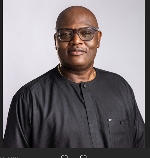
Oti Region: Ghana’s emerging growth frontier
20:17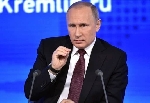
Russia’s stance: “For freedom of nations”
10:02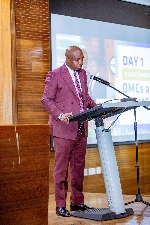
NPA’s regulatory drive strengthens under Edudzi Kudzo Tameklo in eleven months
09:23
Amid record funding, critical gaps loom over Ghana’s 2026 health budget
15:21
Is the Special Prosecutor independent?
00:57
Africa’s Bold Stand: Mali’s victory and Ghana’s resolve should be the blueprint
13:50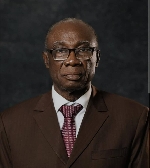
In defence of Act 794: Context, competitiveness and the real path to mining value
13:59
KGL's Resilience, impact in 2025 a remarkable benchmark for corporate Ghana
09:06
Is Ghana’s Special Prosecutor truly independent? Legal analysis raises key questions
14:39



